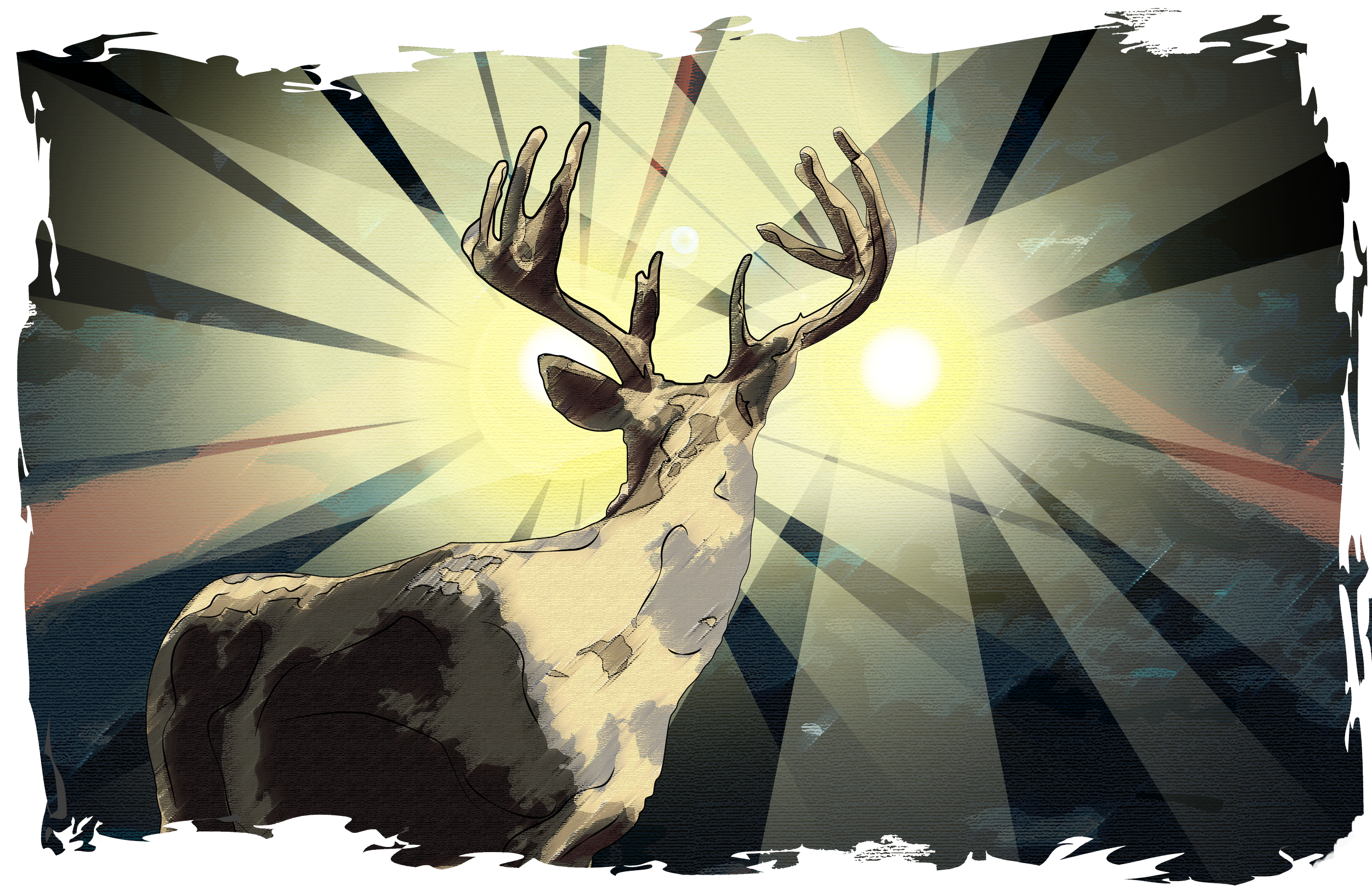A Mother's Love
The rain has returned, obscuring the night in a driving curtain that frustrates my every step. Only a few metres of flagstone to go, but the slick footing is unreliable, tributaries rushing in icy gushes, making gorges out of grout. Gasping for breath beneath a parapet, I pause once more before reaching my destination. Across the way, the new museum beckons, its freshly-gilded door dulled by the weather’s lashing and the evening’s shadow. The key hangs around my neck.
I heft my burden, remembering the days when he toddled so smoothly by my side. We’d have giggled in this storm, watched from protective windows, and eviscerated puddles in the morning’s rays. Now, I drag him through the rain.
Such is the turning of time.
The downpour does not relent, so I wrap my arms around him and stumble onward into the museum’s cool hall, to the single room for which the place was ordained. Within that space lies a shrivelled, dry husk resting alone on a pedestal. A reminder of my failure—his win. I drop him then; releasing us both to the frozen floor, and my free hand claws my empty belly. Another derelict pod.
“Dead.”
The room ricochets my echoed whisper, each muffled word another bullet, another flinch. Dead,
dead,
dead.
All dead now. Withered as my heart.
Red tears fall along the creases of my wrinkled skin, but there’s no rain to wash the stains away. Carefully, gently, I pile his fading curls beside the plinth. Golden hair clings to my fingers. It is sallow, bereft of the life I once birthed, as clammy as his skin. I stroke the strands anyway. So light. So easily blown away.
My fingers catch in the tangles.
Her hair twinned sunshine against his fire, a match too close for luck. She called it fate, to which he fell. I called it scheme. But none would hear.
Jagged, furious thoughts rip through my throat, and vomit coats my mouth. She will not be placed here; I have made sure of that. Liars will not lie beside my son another night. Not even twenty mattresses of plucked goose and a hidden husk could convince me otherwise.
I fed her poisoned peas, and starved the pigs.
I wonder if they’ll find what scraps remain.
A lightning bolt of pain jerks my heart and pulls a gasp from me. Will the gods seek now to strike me down? But no, the fear passes; the pain… not the cold.
A hollow blankness fills the space where my internal organs used to be.
I wish the rain would tumble back into the sky and take me with it. I am sorrowful enough to make it rain forever.
They could not believe my demands at first—those cheap, empty lechers attempting to replace a mother’s love. Time and again, the women failed my test of worthiness, and all were forced to leave. Good riddance to bad company. No so-called “princess” in the world would ever match what I provide.
How did he discover my ruse, I wonder? The bedraggled wretch beside the fire, begging for a bed. The tower of feather-down she somehow climbed atop. The morning bruises. The complaints. Ungrateful, uncouth, unforgiven.
He must have told her.
I swipe the pea. Cracked and hard, it tumbles from the pedestal and shoots into his curls, the folds embracing it the way he embraced her. A cry screeches from my worn voice, and like a crow, I scrabble at the scrap.
Then, footsteps. Chains. Whispering swords in the rain.
They come.
But I will wait with him. Always, always, I will wait.
No one knows the depths of my love.
I stroke his curls with black-red fingers. Flakes of blood—their blood—mingling in the gold and marring his faded shine.
You were mine, my love, my everything, my son.
This is what it means to be true.
__________
Emma Louise Gill (she/her) is a British-Australian speculative fiction writer and consumer of vast amounts of coffee. Her short stories appear in AntipodeanSF, Curiouser Magazine, Crow and Cross Keys, Etherea Magazine, and others. She blogs at www.emmalouisegill.com and procrastinates on Twitter @emmagillwriter.






